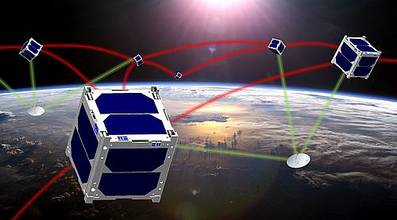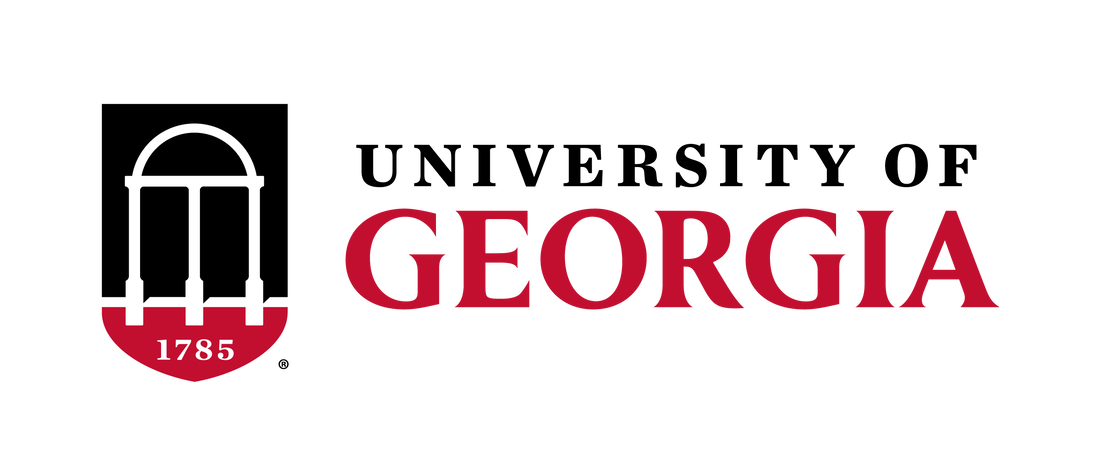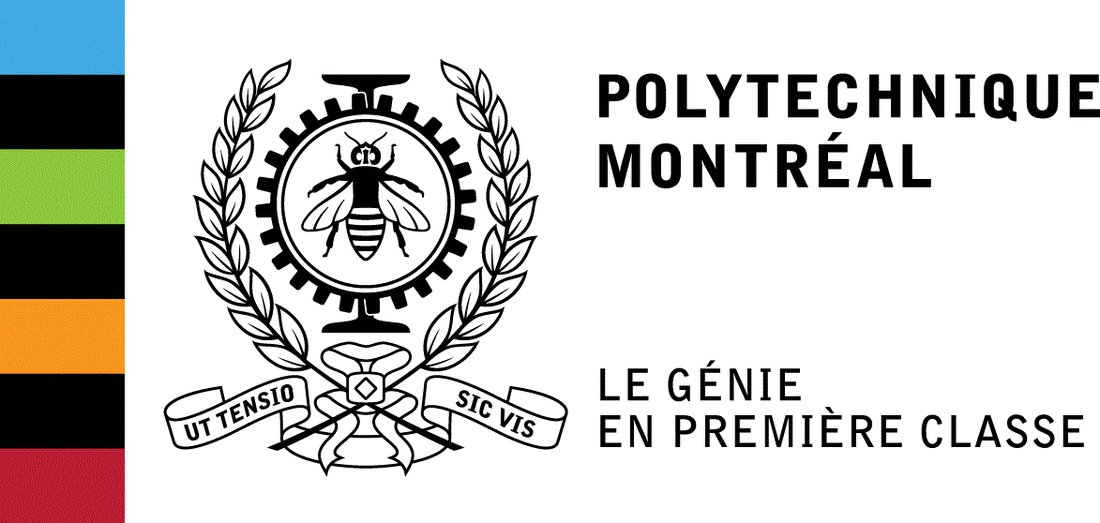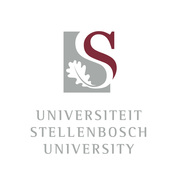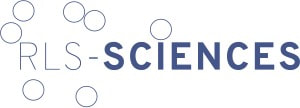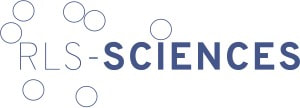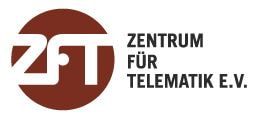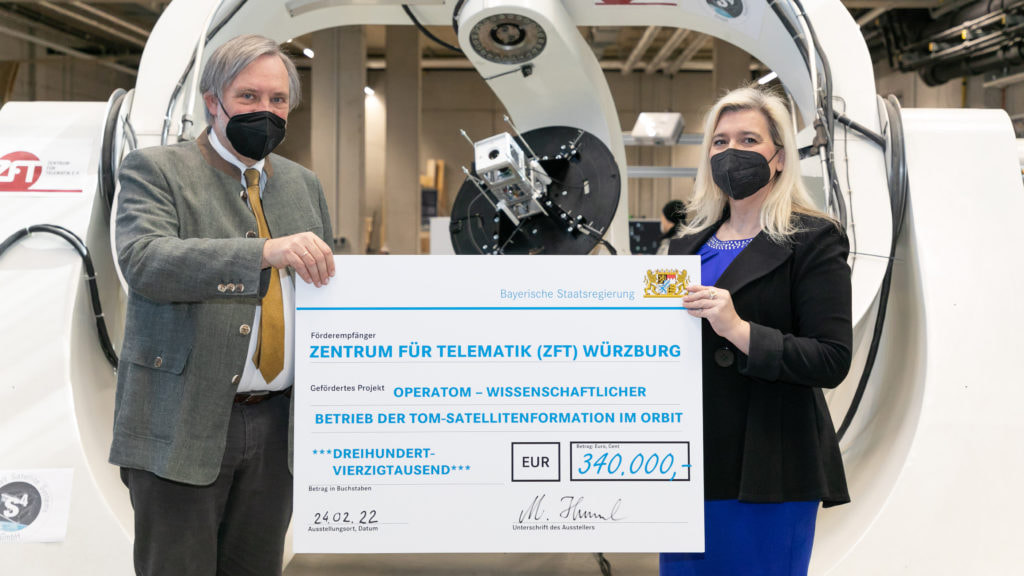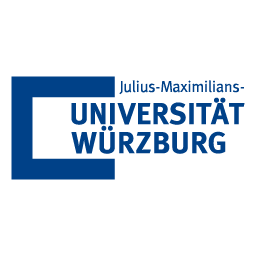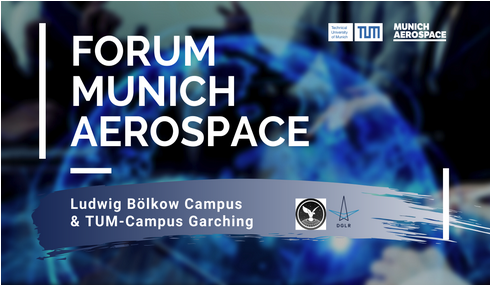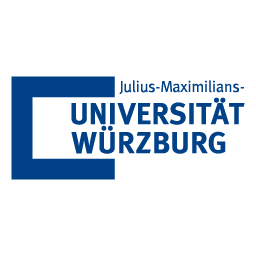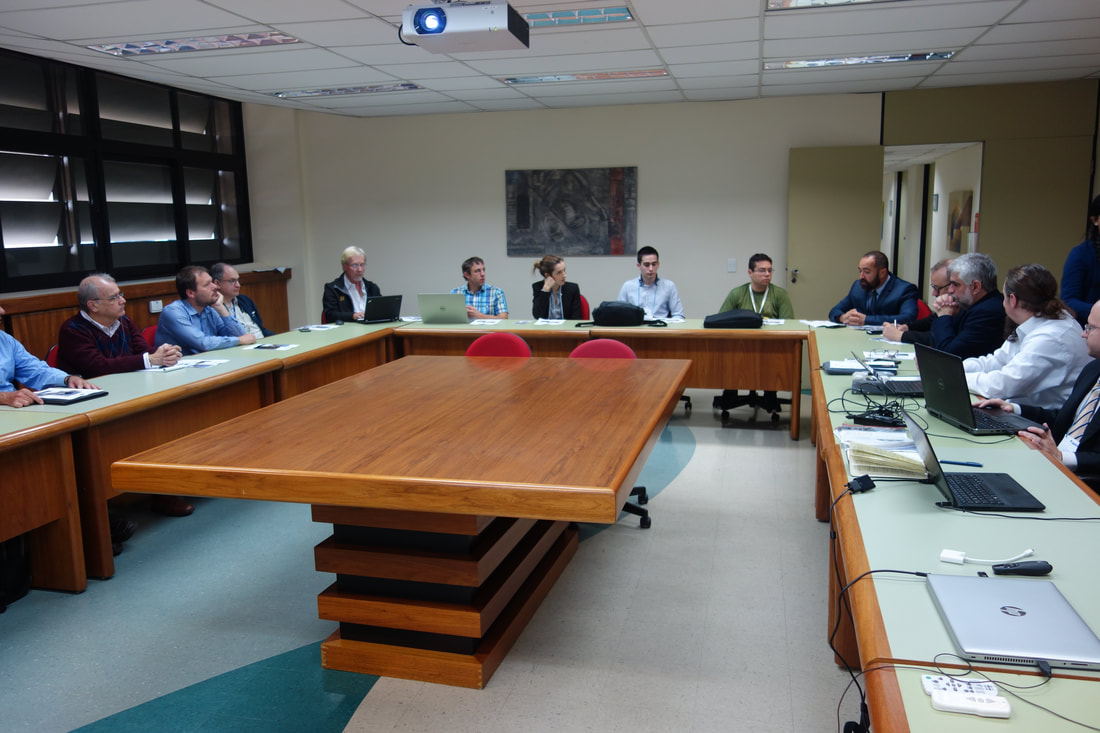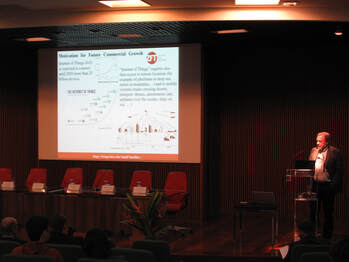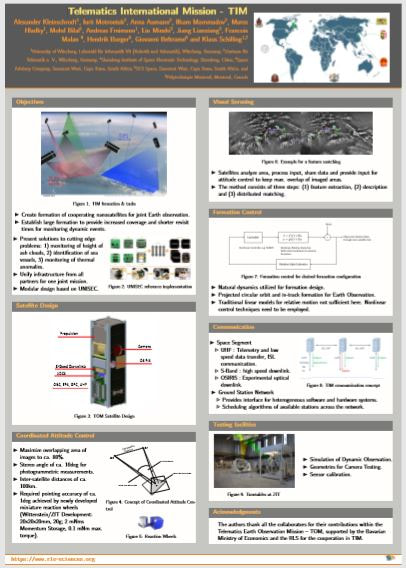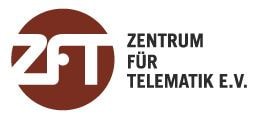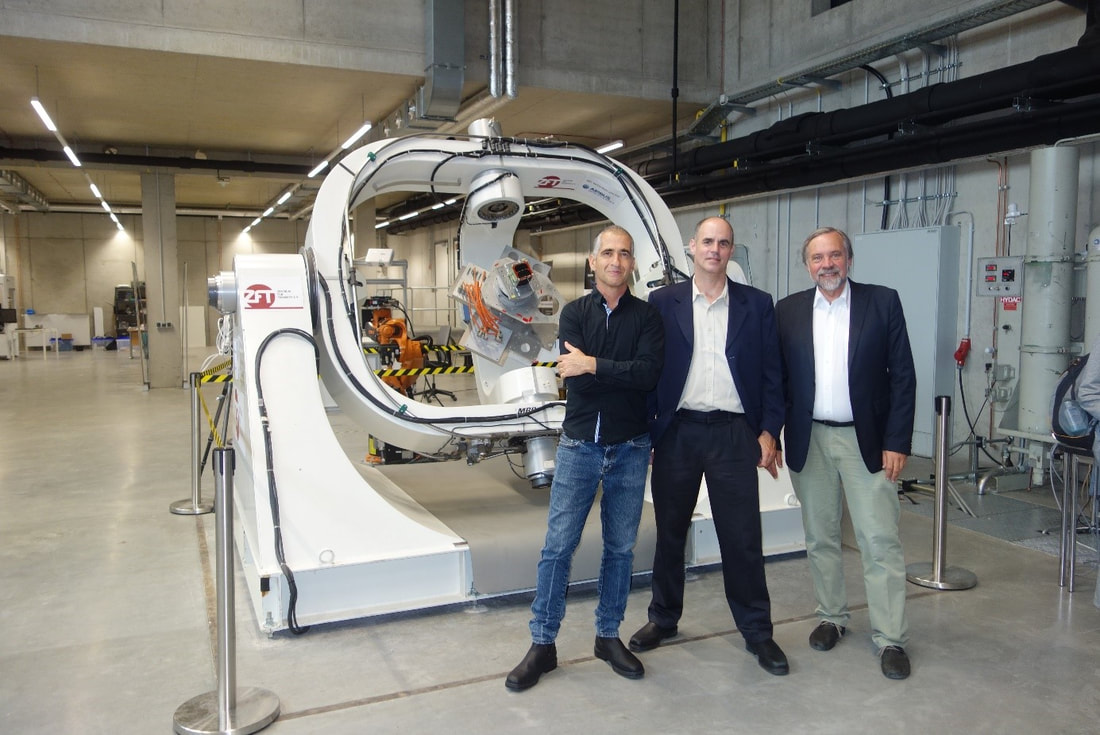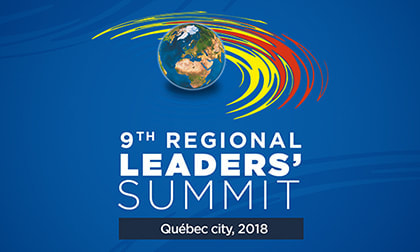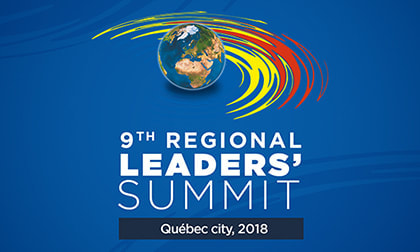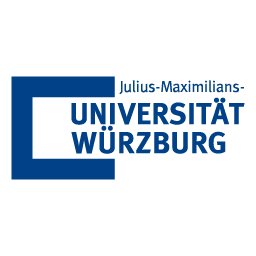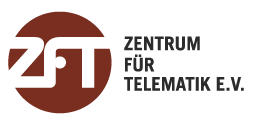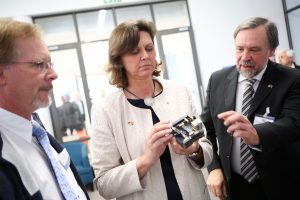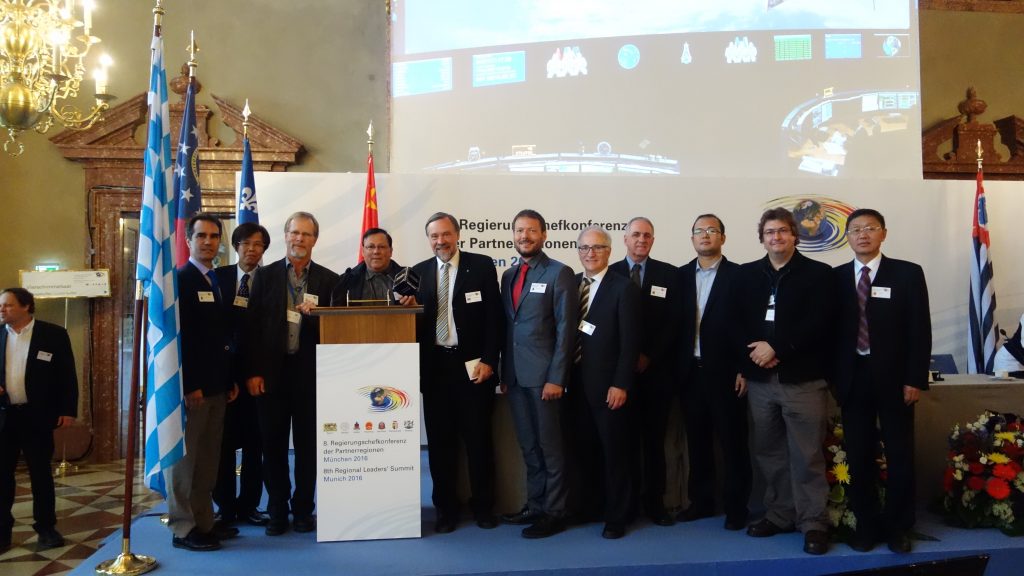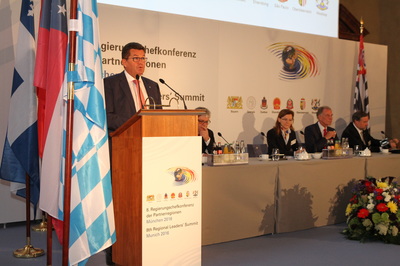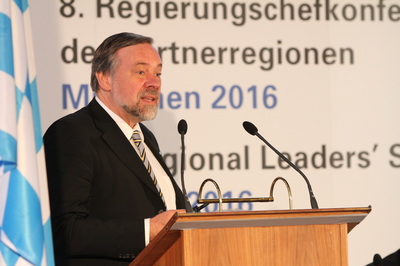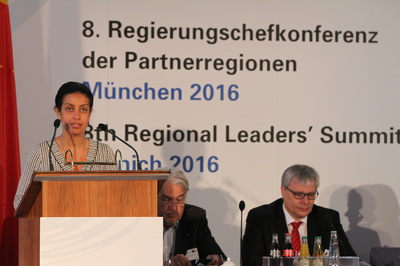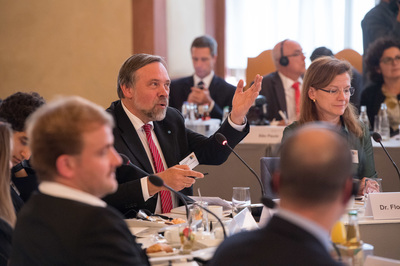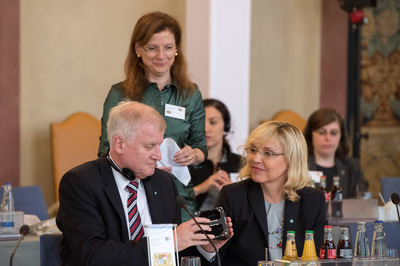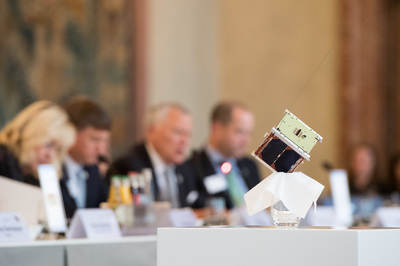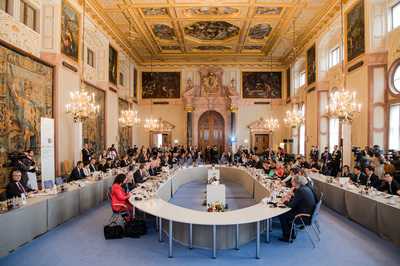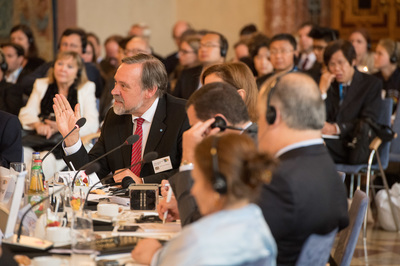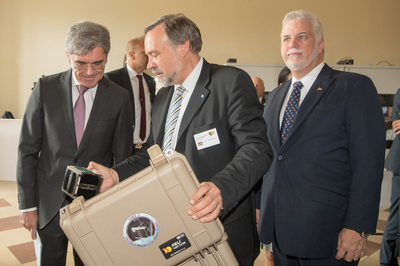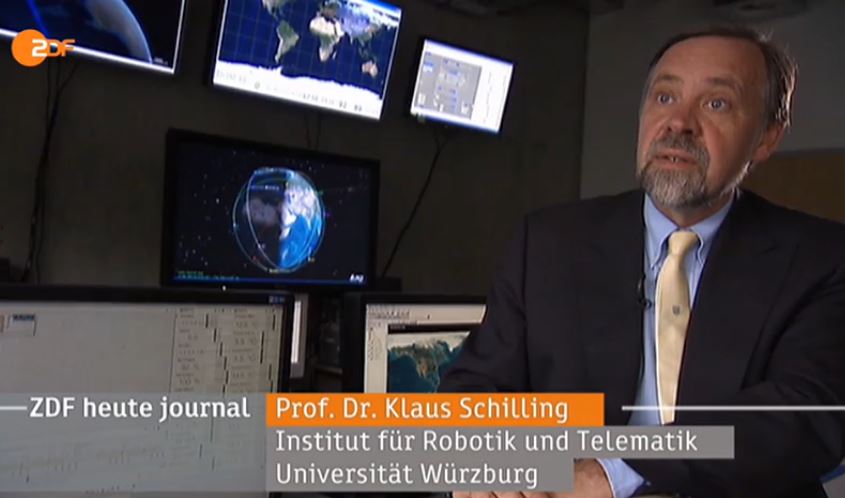About RLS-Small SatellitesThe RLS-Small Satellites (est. 2016) are working to bring international cooperation among the partner regions to new heights with a networked formation of cooperating pico-satellites. The data generated by these satellites will be shared within the partner regions to a user community. The regions contribute according to their strengths and available resources, participating in the international ground-station network, providing data analysis, or through the provision of the pico-satellites themselves.
|
The Partners
Regional partners include (listed alphabetically by region):
|
Universität Würzburg (Bavaria)
Zentrum für Telematik e.V. (Bavaria) Airbus EADS (Bavaria) DLR (Bavaria) IABG (Bavaria) Technische Universität München (Bavaria) University of Georgia (Georgia) Click on any partner's logo to learn more. |
Polytechnique Montréal (Québec)
The National Institute for Space Research (São Paulo) China Academy of Space Technology: Shandong Institute of Aerospace Electronics (Shandong) Johannes Kepler Universität Linz (Upper Austria) Cape Peninsula University of Technology (Western Cape) Stellenbosch University (Western Cape) Interested in joining the RLS-Small Satellites? Get in touch here. |
News and Updates
RLS-Sciences Digital Week 2024
|
2023 RLS-Sciences Digital Week
|
Professor Klaus Schilling receives Bavaria's Constitution Medal
|
|
On 2 December, 2022, Prof. Klaus Schilling was awarded Bavaria’s Constitutional Medal by the Bavarian Parliament in recognition of his contributions to the field of small satellites and the benefits therein for Bavaria. His work to initiate a curriculum on space technology at the University of Würzburg included the SpaceMaster program and Satellite Technology courses. In parallel, he undertook pioneering work with his teams to bring new technologies into space.
|
|
In 2005, these efforts produced Germany’s first pico-satellite, UWE-1, which optimised the parameters for internet from space. In 2007, new heights were reached with the founding of the independent research institute Zentrum für Telematik, which has produced the four NetSat satellites (2020 launch) for self-organisation of optimum observation configurations and now the three TOM satellites for 3D Earth observations (2023 launch). These achievements have secured Prof. Schilling and the Zentrum für Telematik as one of the worldwide leading institutions on multi-satellite systems. New activities are already underway to develop a research factory for small satellites- a European first. Next year, the TOM satellites will be launched. These have been realised as part of the RLS-Small Satellites research group efforts in the Telematics International Mission. RLS-Sciences congratulates Prof. Schilling on the receipt of this award.
Visit the Zentrum für Telematik webpage here.
Visit the Zentrum für Telematik webpage here.
RLS-Sciences Overall Conference 2022
|
Bavarian Minister Huml presents funding for Bavarian small satellites
|
RLS-Small Satellites lead scientist Prof. Klaus Schilling wins prestigious German Aerospace Society Award
|
RLS-Small Satellites at the RLS-Sciences Online Conference 2021
|
Second RLS-Small Satellites NewsletterThe second newsletter from the RLS-Small Satellites project is now online! It can be dowloaded here.
|
Forum Munich Aerospace lecture with Prof. Klaus Schilling on mini-satellites
|
Bavaria and São Paulo meet in Würzburg for Small Satellites
|
Small Satellites at the RLS-Sciences Conference 2019
|
RLS-Small Satellites ''TIM'' Poster presented at 12th IAA Symposium in Berlin
From 6 to 10 May, 2019, the International Academy of Astronautics hosted its 12th Symposium on Small Satellites for Earth Observation in Berlin, Germany. The RLS-Small Satellites group presented a poster on the ''Telematics International Mission'' or ''TIM''.
Review the poster here. Learn more about the 12th IAA Symposium here. |
Celebration for small satellites success with ERC Synergy Grant for CloudCT
On 1 March, 2019, representatives from academia, government, and industry gathered in Munich to celebrate Prof. Klaus Schilling (Zentrum für Telematik), Prof. Ilan Koren (Weizmann Institute, Rehovot), and Prof. Yoav Schechner’s (Technion, Haifa) European Research Council (ERC) Synergy Grant for their interdisciplinary project, ‘’CloudCT’’. Over 70 guests attended the celebration at the invitation of the Scientific Coordination Office (WKS) and the Bavarian Research Alliance.
CloudCT builds upon longstanding small satellites research programme Prof. Schiling conducts in Würzburg with the ‘’UWE’’ and ‘’NetSat’’ series, as well as the international experience within the multilateral RLS-Small Satellites project with the ‘’TIM’’ series. Now in CloudCT, the principal investigators and their teams will capture unique data about clouds through advanced computer tomography using a formation of ten small satellites. The aim is to improve climate modelling. The celebration began with a video message from Prof. Dr. Jean-Pierre Bourguignon, President of the European Research Council. Then, Judith Gerlach, Bavarian Minister for Digitalisation, spoke about the linkages between digitalisation and future technologies such as pico-satellites. Guests then treated heard a short history of research cooperation between Israel and Germany from Sandra Simovich, Consul General of the State of Israel in Munich. The keynote address was given by Prof. Dr. Gerhard Sextl, who provided guests enlightening and humourous insights into the career and successes of Prof. Schilling, as well as Prof. Koren and Prof. Schechner. The researchers themselves then jointly presented their project, giving guests an opportunity to understand the need for an interdisciplinary approach and how each field will advance through this research. |
First RLS-Small Satellites NewsletterThe first newsletter from the RLS-Small Satellites project is now online! It can be dowloaded here.
|
Student team led by Prof. Brian Gunter launches first Georgia Tech cube satellites
On 3 December, 2018, the SpaceX Falcon 9 rock successfully launched with a payload that included two Georgia Tech R.A.N.G.E. (Ranging and Nanosatellite Guidance Experiment) cube satellites. This marks the first time Georgia Tech satellites have successfully made it to space. The two satellites are now orbiting the Earth in a leader-follower formation. An autonomous system will collect the satellites’ data as they pass over Georgia Tech each day. The two satellites have no on-board propulsion, so they will use differential-drag techniques to maintain the formation, for which Prof. Gunter says there is very little experimental data in academic literature. Further, the satellites will explore relative navigation and autonomous maneuvering.
Read more here. |
Zentrum für Telematik wins prestigious ERC Synergy GrantThe interdisciplinary German-Israeli project "CloudCT", with Prof. Klaus Schilling, has won a European Research Council (ERC) Synergy Grant, endowed with a maximum funding of €14 million. A formation of 10 microsatellites will record the composition of clouds using computer tomography methods. It is important that about 10 satellites simultaneously capture the target area from different directions in order to generate a corresponding 3D image. This will provide atmospheric physicists with data to improve cloud modelling and improve climate predictions. An error of about 1% in cloud properties contributes to deviations in climate predictions at about the same order of magnitude as all greenhouse gases from human activities.
|
RLS-Small Satellites at the 9th RLS Conference
On Friday, 18 May, 2018 , Prof. Dr. Klaus Schilling presented the RLS-Small Satellites project to the Regional Leaders Summit Conference at the Château Frontenac in Québec. This was part of the RLS-Sciences presentation segment of the conference. The presentation offered insights into the updated design of the satellites, as well as potential new applications and the progress of the project since 2016.
Review the RLS-Small Satellites presentation here. Review the detailed publication references here. |
RLS-Small Satellites Project Meeting in Québec
The RLS-Small Satellites project has been progressing towards a launch date, and the project meeting in Québec allowed the project partners a key opportunity to come together to determine the precise status of the individual satellites, the components, and the support. The project has now progressed to the stage of discussing further potential applications for the satellites following launch, which represents an important opportunity across all seven RLS regions.
A highlight of the RLS-Small Satellites activities was the inclusion of a scale-model of the TIM satellite, which project leader Prof. Schilling brought to a number of events. This allowed participants from all levels of RLS to gain a better understanding of the satellites, including the proportions, which are a critical component of the project. Review the meeting overview presentation from Prof. Dr. Klaus Schilling here. Review the detailed publication references here. Review the presentation from project partners in Shandong here. |
Previous Events
New degree programme “Satellite Technology” at Julius-Maximilians-Universität Würzburg, Bavaria
The new degree programme “Satellite Technology – Advanced Space Systems” will start in winter 2018 at Julius-Maximilians-Universität Würzburg, Bavaria. Focused on small satellites, telecommunication, earth observation, and digitalisation, this programme will expand the well-established programme “Erasmus Mundus Master Course in Space Science and Technology – SpaceMaster”. Special lectures and excursions will be organised by different partners in Bavaria, like Zentrum für Telematik, TUM, University of the Bundeswehr, and DLR. Professor Dr Klaus Schilling is chair of the new programme.
Read more here. |
Zentrum für Telematik wins INNOSpace Master Competition 2017On 18 May, 2017, the Zentrum für Telematik e.V. (ZfT) was announced as the winner of the INNOSpace Master Competition Airbus Defence and Space Challenge 2017. This year, the INNOSpace Master Competition theme was: "Space 4.0: Ideas for the next space generation". The ZfT proposal to use advanced manufacturing methods in the production of satellites for advanced space applications ranked first out of 66 proposals submitted. According to Prof. Dr. Klaus Schilling, CEO of ZfT, the application of advanced manufacturing methods is more important now that greater numbers of small satellites will be in demand. The proposal includes joint human-robot processes in manufacturing, and seeks to decrease both production costs and innovation cycle implementation times. Zentrum für Telematik e.V. is the lead partner in the RLS-Small Satellites project.
Further information about the proposal from Zentrum für Telematik e.V. can be found here. (German only) Visit the Zentrum für Telematik e.V. website here. Learn more about the InnoSpace Masters Competition here. |
Support from Western Cape for TIM consolidatedDuring the visit of the Bavarian delegation of Minister of Economics Ilse Aigner to South Africa, a small satellite symposium was held at CPUT in Capetown. It focused on the joint “Telematics International Mission (TIM)” addressing a pico-satellite formation for Earth observation with applications in agriculture, in volcano and in marine monitoring. The presentation took place on 12 April, 2017.
Learn more about TIM here. Photo: Prof. Herman Steyn (Stellenbosch University) explains the South African pico-satellites to Minister Ilse Aigner and Prof. Klaus Schilling (Source: RLS-Small Satellites, 2017) |
RLS-Small Satellites Project Meeting at Zentrum für TelematikThe RLS-Small Satellites group met from 24 March to 25 March at the Zentrum für Telematik in Würzburg, Bavaria. Updates from each RLS region were provided. The group discussed the specifics of a series of key aspects for the project over the two days, and set out the next steps to move forward. With the success of this meeting, the group continues to move towards launch.
|
RLS-Small Satellites Kick Off Meeting
On Friday, 15th July, 2016, partners from across the RLS regions met for a kick-off meeting of the RLS-Small Satellites project. The consortium features members from all seven RLS regions, and the meeting resulted in fruitful discussions and a plan for the next steps of the project.
|
RLS-Small Satellites presented at the 8th RLS ConferenceOn Friday, 15 July, 2016 , Prof. Klaus Schilling, Bavarian coordinator of the RLS-Small Satellites project, presented the project to the Regional Leaders Summit Conference at the Residenz in Munich. This was part of the RLS-Sciences presentation segment of the conference. Bavarian State Secretary for the Ministry of Economy and Media, Energy and Technology, Franz Josef Pschierer gave the welcoming address. Québec Minister for Economy, Science and Innovation and Minister Responsible for the Digital Strategy Dominique Anglade gave the closing remarks.
Review the RLS-Small Satellites presentation here. |
Prof. Dr. Klaus Schilling presents the RLS-Small Satellites project to the heads of government at the 8th RLS Conference
On 14th July, 2016, Prof. Dr. Klaus Schilling presented the concept for the RLS-Small Satellites project to the seven heads of government from each RLS region, as well the the political delegations, the press, and selected RLS-Science researchers. The presentation described the possibilities for cooperation between all seven regions in the field of pico-satellites, and illustrated the possible uses of such an integrated network. The project seeks to develop an intelligent formation of pico-satellites in orbit for applications in Earth-observation and telecommunication.
Review the RLS-Small Satellites presentation here. |
3rd International African CubeSat Workshop 2016
The 3rd International African CubeSat Workshop 2016 was successfully held in Cape Town, South Africa from 24 to 26 February, 2016. Hosted by the French South African Institute of Technology at Cape Peninsula University of Technology, the event was also supported by Stellenbosch University. The 3rd IACW focused on relevant topics such as Emerging and Disruptive Technologies, Value Proposition and Business Opportunities, Human Capacity Development, Applications for Sustainability and Prosperity, STEM Education and Awareness, and Space Governance and Policies.
Read more here. |
Small satellite research featured on German national news, ZDF
Research from the Institut für Robotik und Telematik (Institute for Robotics and Telematics) at the Universität Würzburg was featured during a segment on the German national television channel ZDF. Prof. Dr. Klaus Schilling was interviewed about the potential of small satellites for internet in space.
|
